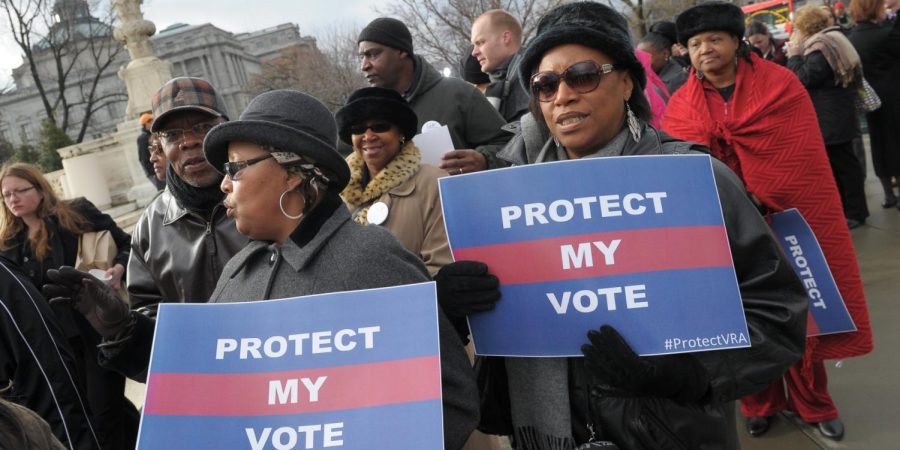Students respond to states legislatures’ voting restrictions
November 13, 2021
At least 19 states are passing new laws making it more difficult to vote. Some laws include restricting organizations’ abilities to collect mail-in ballots, limiting the number of ballot drop boxes in town/city divisions, seeking to curtail early voting, stopping private donors from supplementing their operational budgets, etc. Eliza Sweren-Becker, voting rights and elections counsel at the Brennan Center, said the new wave of voting laws is “an unprecedented assault on voting rights” and “a voter suppression effort we haven’t seen since the likes of Jim Crow.”
Kiasa Trabue, a junior communications radio/television broadcasting major, believes it is wrong for states to make it harder for citizens to vote.
“We already overcame women not being able to vote, and African Americans not being able to vote,” Trabue said. “We surpassed those after all these years. For states to be doing this to people, it is making it seem like a way back to Jim Crow-like laws which are wrong against all odds.”
Curtis Watson, a junior marketing major, believes states are trying to make it harder for people to express what they want.
“I feel as if the suppression of our voting rights is to exceed the number of votes needed for the opposing party,” Watson said. “Since most of the population vote either through mail or ballot boxes, which did not have a limit, I feel it is slowly being implemented to secure the vote of the non-leading party.”
Ari Conroy, a junior forensic biology major, believes voting rights restrictions are not right and unethical.
“States restricting voting rights are politicians trying to block voters from the ballot boxes,” Conroy said. “A lot of the restrictions are a form of voter suppression, such as the terms and requirements of registration. Since the 2020 presidential election between Joseph Biden and Donald Trump, I believe this is a way to help politicians try to justify the voting restrictions by, of course, having unsupported claims of voter fraud.”







